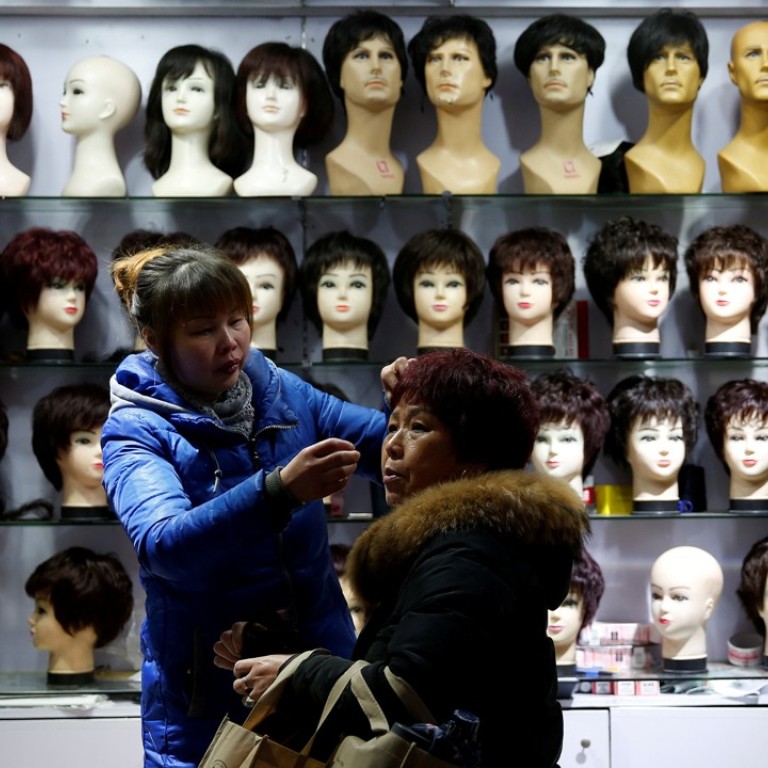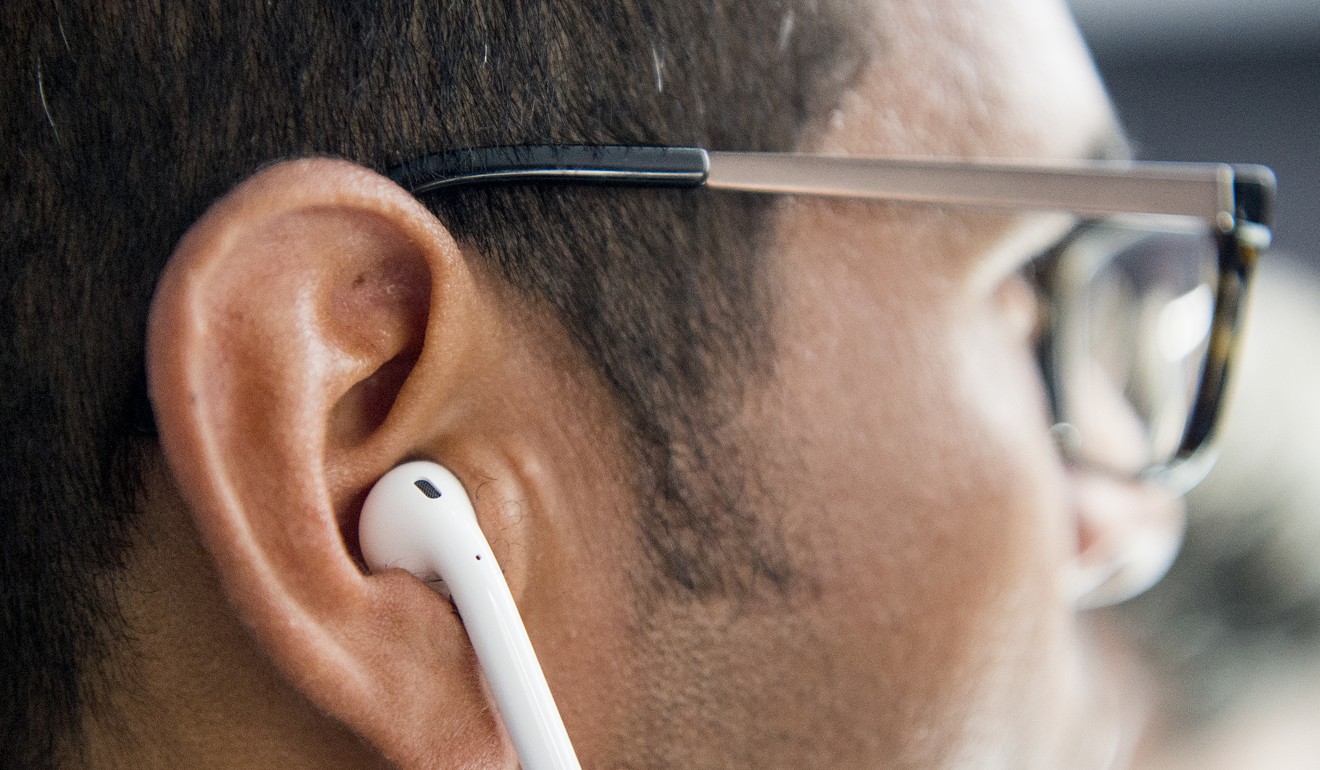
Human hair to rare earth metals – the items that won a reprieve as the US-China trade war expands
Revised tariff list reflects lobbying efforts of various American industries
While announcing fresh tariffs on US$200 billion worth of Chinese-made goods on Tuesday, the United States opted to remove an eclectic list of items it had originally targeted in July – ranging from smartwatches to rare earth minerals and human hair for wigs.
The revised list reflects the lobbying efforts various industries made to try and protect their products, ranging from technology giant Apple to Lighting Technologies International, a medium-sized California company that uses rare earth elements to make xenon lamps for digital cinema projectors.
US President Donald Trump threatened in July to impose tariffs on thousands of Chinese products as the US seeks to overcome a US$376 billion trade deficit between the countries, and to discourage what he says are unfair trade tactics used by the Chinese government.
Trump hits China with new US$200 billion tariff attack
With the latest list, the Trump Administration has targeted about half of all goods exported to the US from China, which sent US$505 billion in products to America last year.
The Chinese government said on Tuesday it would take “synchronised counter measures” in response to the US actions. It previously said it would add retaliatory tariffs on US$60 billion of American-made products. It may also cancel planned trade talks in Washington next week as a result of the latest move by Washington, according to a government source.

Lillian Li, vice-president credit strategy and standards at Moody’s Investors Service, said the new tariffs marked a “major escalation” in the US-China trade war, affecting about 6,000 products and a greater amount of consumer goods than past rounds. It could negatively affect China’s gross domestic product by 0.3 to 0.5 percentage points, she said.
“The negative impact of the tariffs could spread beyond the targeted sectors due to the increasing domestic value-added characteristics of Chinese exports,” Li said on Tuesday. “The spillover effect will be amplified, as companies using the higher tariff and therefore higher cost products as raw materials will gradually diversify or shift supply away from China.”
The Trump Administration plans to impose a 10 per cent tariff on more than 5,700 items, ranging from caviar to beer, and increase the tariff to 25 per cent on January 1 if no agreement is reached with China.
However, 297 categories were fully or partially removed from the tariff list originally proposed by the Office of the United States Trade Representative, after intense lobbying by US businesses and about a week of public comment.
The excluded list includes items where China is the dominant exporter – rare earth metals – or is one of the few places that supplies such items – it is the second-largest exporter of human hair to the US after India, according to US trade data. The human hair is often processed into wigs.
The items the US chose to remove from its tariff list also included car seats for babies and toddlers, Ibuprofen, antiques more than 100 years old and a variety of chemicals.
The US also chose to remove at least one category where China accounted for no exports last year and is not expected to account for any in the near future: electrical energy. Canada is the only country that exports electrical energy to the US, sending power worth US$3.6 billion last year.
For some American businesses, the inclusion of a raw material or certain product had the potential to dramatically affect their future prospects.
China says it will hit back against Trump’s latest tariffs
Lighting Technologies International, a 200-person company based in Baldwin Park, California, said the proposed tariffs covered several critical components needed for its manufacture of digital cinema xenon lamps, including rare earth materials.
The company, whose products have been used to light the World Trade Center memorial site in New York and by Nasa at the space shuttle launch pad, said tariffs on those components would “result in the cessation of Lighting Technologies International as an American company”, as it would be unable to compete with overseas competitors.
China is the largest exporter by far to the US of the rare earth elements, accounting for about 60 per cent of the US$234.4 million worth of materials imported to America last year, according to data from the US International Trade Commission.
Pendleton Woolen Mills, a Portland, Oregon, maker of textile products ranging from blankets to jumpers, said increased tariffs on wool, yarn, buttons and other products would “jeopardise our business model”. The company employs 300 people in Oregon and Washington state.
Most of the about 100 categories of items highlighted by Pendleton in a filing with the US Trade Representative were included in the final tariff list.
“We continue to expect a relatively large pothole in [fourth-quarter] growth, as these tariffs push a large swathe of new manufacturing establishments out of business,” UBS said in a research report on Tuesday. “We see a small boost to inflation as tariffs pass through to the household sector.”
If the US and China are unable to reach an agreement, UBS said: “We see a multilane expressway to further escalation and substantive negative economic effects to both countries.”
Apple received a reprieve on Tuesday as categories that covered the Apple Watch and AirPods were removed from the list. However, categories that encapsulate its Apple Pencil and Magic Mouse, as well as various other components, remained on the list.
Apple’s smartwatches, wireless earphones spared in latest US tariffs
“It is difficult to see how tariffs that hurt US companies and US consumers will advance the government’s objectives with respect to China’s technology policies,” the company said in a filing with the US Trade Representative this month.
Apple does not break out individual sales figures for its smartwatch, earbuds or pencil, but the sales category covering these items accounted for about 7 per cent of its revenue in the third quarter.
Haibin Zhu, JP Morgan’s chief China economist, said the tariffs may have a modest economic impact, but could led to the loss of as many as 700,000 jobs in China’s export sector.
“The uncertainty of the US-China trade relationship will hurt business confidence and investment incentive, and will also accelerate the ‘moving out’ trend of [multinational corporations] operating in China as well as Chinese producers,” Zhu said in a research report. “Such indirect impact could be non-linear and may lead to disruption in global supply chains, which would have a long-lasting impact on China and the rest of the world.”
Additional reporting by Daniel Moss

